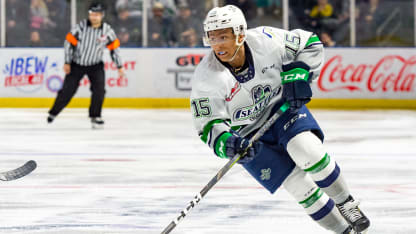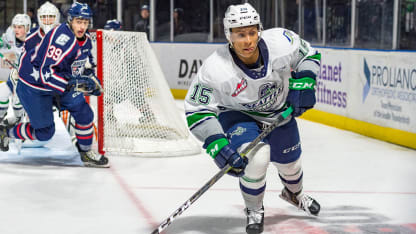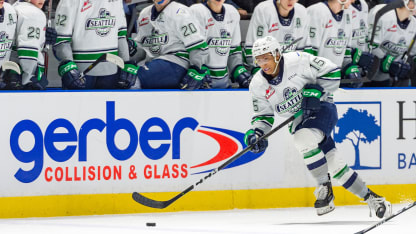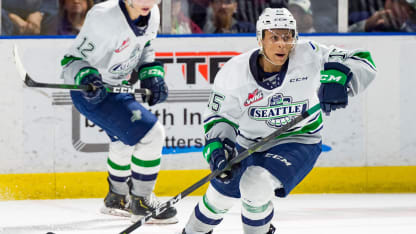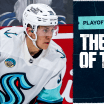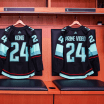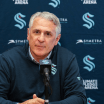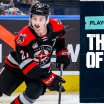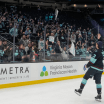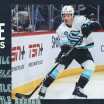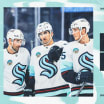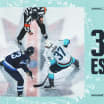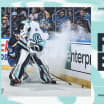"I didn't really think about it until our holiday skate [with fans]," Sanders said. "A little black kid came up to me and said, 'What do you do when there are racial comments?' I talked to him and realized I mean something to these kids and that they look up to me and care about what I have to say. It touched my heart."
When the NHL's Black Hockey History Tour stopped in Seattle in early March, Sanders wanted to visit the truck and mobile museum at the Northwest African American Museum (NAAM). His schedule with the Thunderbirds didn't allow him to attend and meet Damon Kwame Mason, director of 'Soul On Ice,' a documentary about black players in hockey from the late 1800s to present-day NHL
Mason, part of the NHL tour, said players like Sanders play a vital role in opening the game to a more diverse group of next generation players: "It's so big, because there are these young kids who are going through and experiencing certain things that they may not know how to deal with.
"When they can look up and see somebody (like Mekai Sanders) doing it at a higher level, they can learn something from him. It's [not practical] for a young black player to say to an older white player, 'How do you deal with racial adversity'. That's not a disrespect to anyone, it's just experiences … It's so important to have these role models out there so they can pass on their knowledge to the younger generation."
Sanders fell in love with hockey when his father, Scott, was transferred to North Vancouver for work. He was just five years old, but started playing more with youth hockey programs and ice time readily available. When Sanders and his family moved back to Washington two years later for another job transfer, the hockey habit was ingrained. Sanders played in the Seattle Juniors hockey program.
"It was a bit different," he recalled. "Kids would get done with school and their friends would all play soccer and football. I'd leave school early and go to hockey practice."
